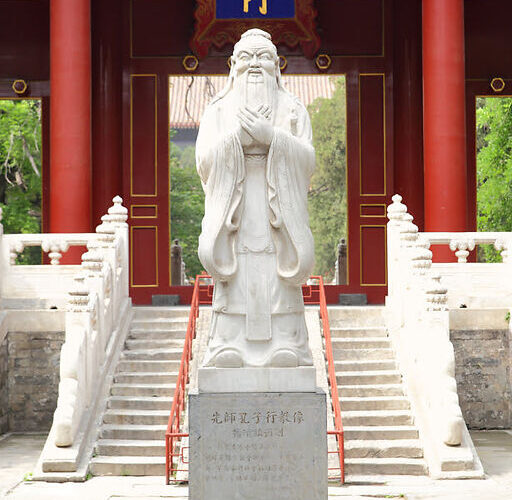Capital punishment, also known as the death penalty, is the practice of executing individuals who have been convicted of certain crimes. The question of whether or not to use capital punishment is one that has been the subject of much debate and controversy throughout history, and different cultures and societies have approached the issue in different ways. In this essay, I will examine the issue of capital punishment in the view of Confucianism, one of the major philosophical and religious traditions in China and other parts of East Asia.
Confucianism is a complex and nuanced philosophy that emphasizes the importance of social harmony and the need to maintain order in society. One of the key principles of Confucianism is the idea that people have the potential to change and improve themselves, and that punishment should be used as a means of rehabilitation rather than simple retribution. In this sense, it could be argued that capital punishment could be seen as a violation of the Confucian principle of compassion and the belief in the inherent worth of human life.
However, Confucius, the founder of Confucianism, also believed in the importance of severe punishment for those who break the law. In the Analects, he states “if the ruler is not severe in punishment, the people will not be orderly”. This suggests that Confucius believed that strict punishment was necessary to maintain social order and prevent crime. He also believed that the role of government is to support and encourage the development of virtue and moral character of its citizens.
One of the main arguments in favor of capital punishment is that it serves as a deterrent to crime. Supporters of the death penalty argue that the threat of execution is a powerful deterrent that helps to keep people from committing serious crimes. However, it is important to note that there is little evidence to support this claim, and many experts believe that the death penalty is not an effective deterrent. Furthermore, Confucianism also stresses the importance of compassion and the value of human life. It would be immoral to take someone’s life to prevent others from committing a crime.
Another argument in favor of capital punishment is that it provides justice for victims and their families. Supporters of the death penalty argue that executing criminals is a necessary step in the healing process for victims and their loved ones. However, it is important to note that capital punishment can also cause a lot of emotional pain and suffering for victims and their families. Furthermore, Confucianism emphasizes the importance of virtue and the cultivation of moral character. It would be more virtuous to forgive and to show compassion to the criminal, rather than to seek retributive justice.
In conclusion, the Confucian perspective on capital punishment is complex and multifaceted. While Confucius believed in the importance of strict punishment to maintain social order, he also stressed the importance of compassion, the value of human life, and the cultivation of virtue. Therefore, it can be argued that the Confucian perspective on capital punishment is that it should be used sparingly, as a last resort, and only when absolutely necessary to maintain social order and protect the safety of the community. Furthermore, the government should focus on promoting virtue and moral development among its citizens, and seek alternative ways to punish criminals that would not involve taking their lives.
References
Confucius and Lau, D.C. (1979). The analects [of] Confucius. Harmondsworth: Penguin Books. [Accessed 16 January 2023].
Mencius and Lau, D.C. (2004). Mencius. London: Penguin. [Accessed 17 January 2023].
Bae, S. (2008). IS THE DEATH PENALTY AN ASIAN VALUE? Asian Affairs, 39(1), pp.47–56. doi:10.1080/03068370701791899. [Accessed 17 January 2023].
